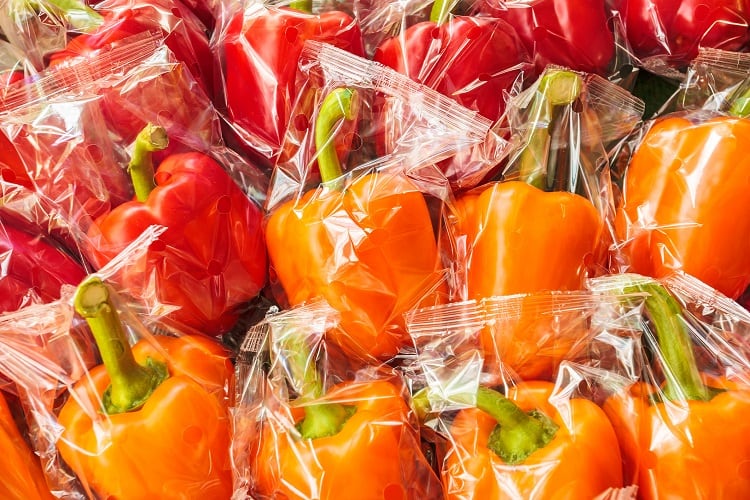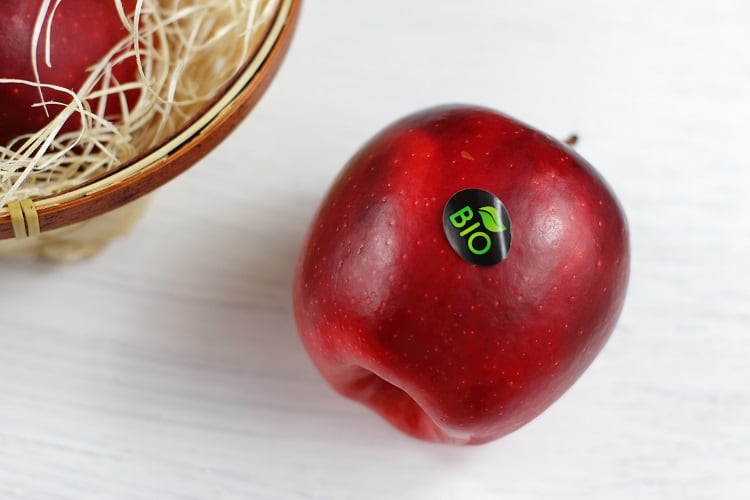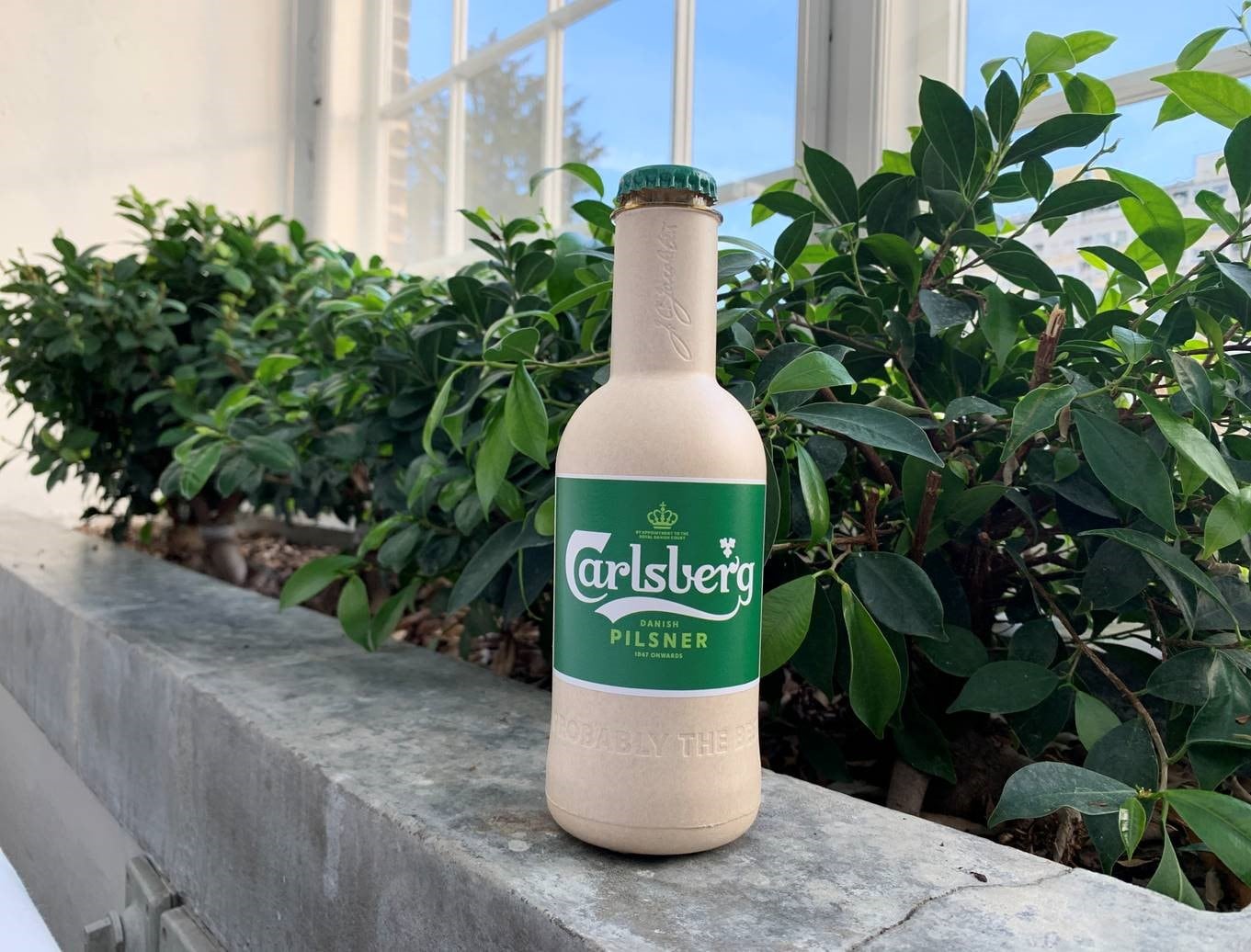The new fund, described as an ‘industry first’ for the UK, is being spearheaded by recycling company Ecosurety with support from environmental charity Hubbub.
In the short-term, the Flexible Plastic Fund’s ambition is to boost flexible plastic recycling in the UK and reduce plastic pollution by giving the material a ‘stable value’.
In the long-term, the Fund hopes to ‘drive progress’ towards creating a ‘circular, UK-based flexible plastic recycling market’ that allows flexible plastic recycling via household collections.
The initiative is backed by a number of FMCG heavyweights, including Mars UK, Mondelēz International, Nestlé, PepsiCo and Unilever.
From the retail sector, Sainsbury’s and Waitrose have agreed to host flexible plastic collection points in stores across the UK. Other retail majors are expected to follow suit.
The soft packaging challenge
Flexible packaging – which includes plastic bags, wrappers, films, pouches, packets and sachets – is widely used by the food industry. It is convenient, cost-efficient, lightweight, and is known to preserve food well.
Otherwise known as ‘soft plastics’ or ‘flexible plastics’, the packaging’s durability, and ability to protect food from sunlight, temperature, and moisture, means that it can increase the shelf-life of perishable products.
However, flexible plastic packaging also presents a challenge: the material is not widely recycled in the UK. While the material represented 22% (30,000 tonnes) of all UK consumer plastic packaging in 2019, just 6% was recycled.
Only 16% of local authorities currently offer household collection of flexible plastics.
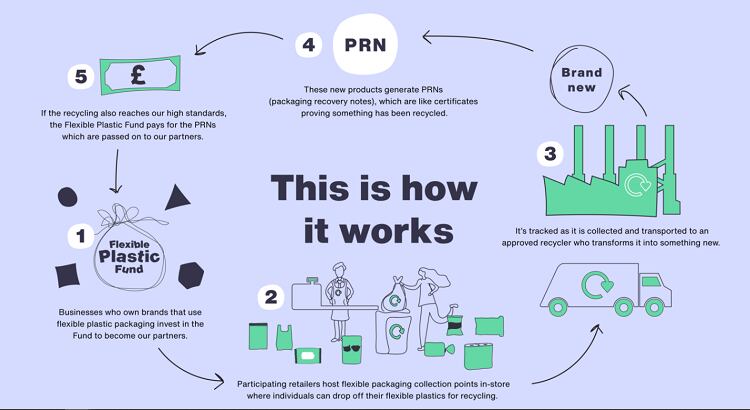
Consumers are disgruntled. Research conducted by the University of Sheffield earlier this year suggests there is strong consumer demand for recycling flexible plastic, with 95% of participants saying they would be willing to recycle their flexible plastics.
The problem lies in the way flexible plastics are processed. They must be treated in a different way to other plastics, due to their unique properties. Soft plastics often contaminate rigid plastic recycling and glob up machinery, according to Ecosurety.
This, however, could be overcome by creating a separate flexible plastic recycling stream.
Recycling solution
Ecosurety’s solution is to guarantee a ‘minimum value’ for soft plastics. The company argues that plastic is a ‘valuable resource’ that should be used ‘over and over again’.
The Fund will guarantee a minimum value of £100 per tonne of recycled product, in order to incentivise recyclers to process flexible plastic.
To kickstart the initiative, the Fund pledges to recycle 80% of plastics collected in the UK. While infrastructure gets up to speed, up to 20% could be exported to qualifying facilities in Europe. “All materials will be fully traceable and tacked from the collector through to new products,” noted Ecosurety.
By 2023, 100% of plastics collected in the UK will be recycled locally.
The recycled plastic will be turned into a range of products, including non-food grade plastic, non-food grade film and food-grade film. By following this model, flexible plastic packaging can be recycled into plastic packaging, including food-grade, again and again.
“By creating a sustainable market for this material, longer term improvements can be made to ensure the flexible plastic that remains necessary for packaging is reliably recycled and eventually contributes to a circular economy, thereby tackling plastic pollution,” said Robbie Staniforth, Head of Innovation and Policy at Ecosurety.
“We hope that by boosting the infrastructure, government and local authorities will be motivated to quickly facilitate flexible plastic recycling in the UK by making it easy for consumers to recycle via household collections in the future.”
FMCGs respond
Participating FMCGs said they were pleased to be founding members of the Flexible Plastic Fund.
Mondelēz International, for example, said it is proud to be investing in and advancing UK recycling infrastructure to ensure its flexible plastic packaging stays ‘within the UK economy and out of the environment’.
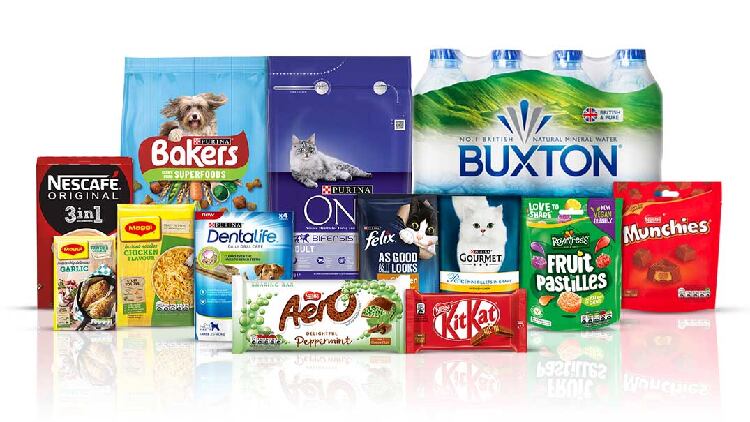
PepsiCo is another to voice its support. “PepsiCo is proud to be part of the Flexible Plastic Fund and to be working with industry peers to take collective action on the issue of flexible plastic recycling; we want to help build a system where packaging never becomes waste.”
And Nestlé said it is ‘really excited’ to be part of the Fund, as it will help to stimulate recycling and give its flexible packaging a ‘useful second life’.


